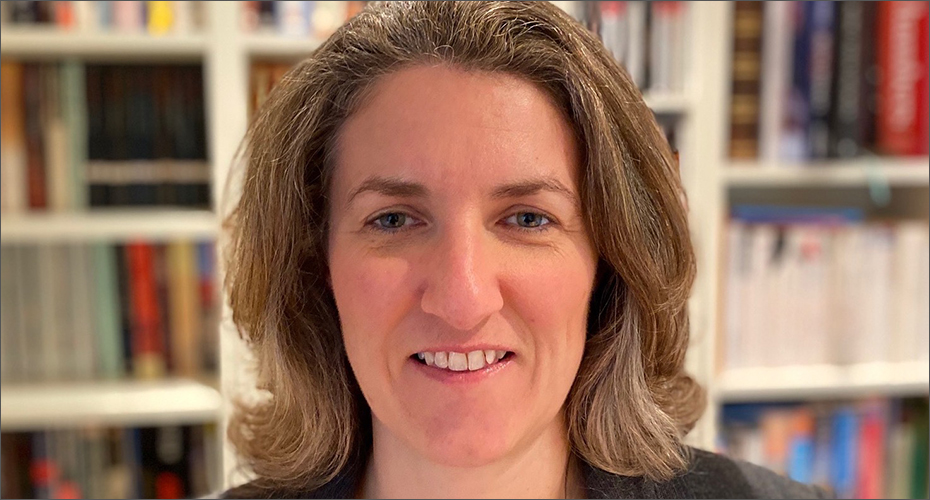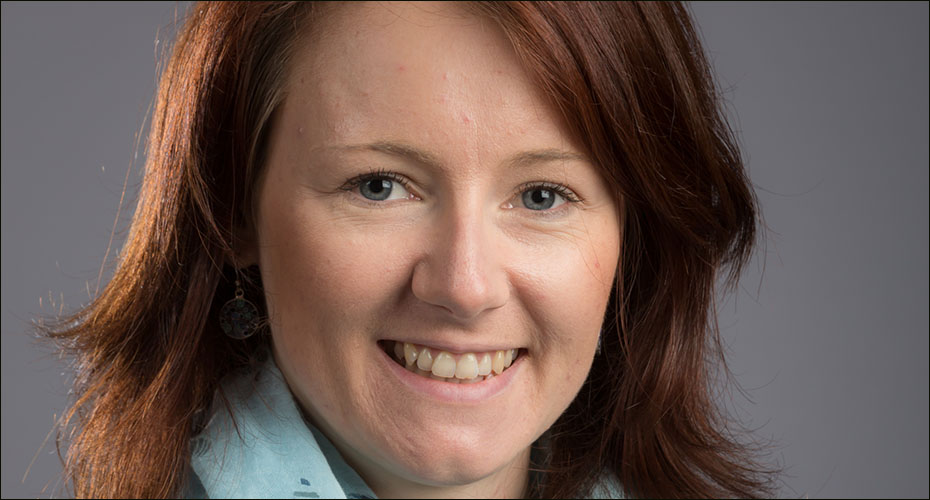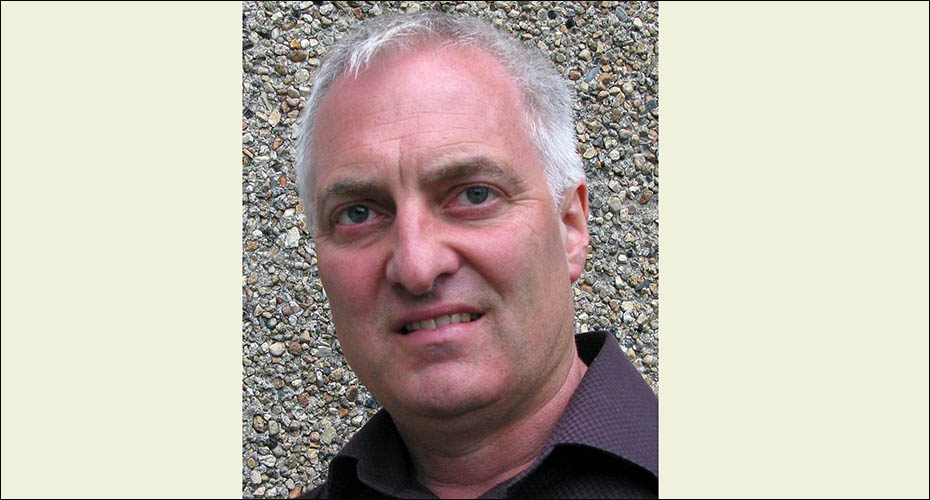Masters applications for 2023 entry are now closed.
Applications for September 2024 will open on Monday 25 September. Applications are now open for programmes with a January 2024 start. View our programmes »
| UCAS code |
1234 |
| Duration |
1 year full time
2 or 3 years part time |
| Entry year |
2024 |
| Campus |
St Luke's Campus
|
| Discipline |
Healthcare and Medicine
|
| Contact |
|
| UCAS code |
1234 |
| Duration |
Over 2 years |
| Entry year |
2024 |
| Campus |
St Luke's Campus
|
| Discipline |
Healthcare and Medicine
|
| Contact |
|
Overview
- Gain cutting edge skills in the field of health-related data; a rapidly growing area in which the UK excels with access to the largest biobanks, genomic and health services resources.
- Join a diverse cohort of students who seek to develop an aptitude for handling data and improve their coding skills.
- Learn to apply your quantitative skills (e.g. computational, mathematical, engineering) in a health and medical setting, even if you have had no prior experience in health or medicine or biology. OR learn to apply your previous experience in health, medicine or biology in new ways by learning quantitative skills in computing and data science.
- Perform research in the real world, with a range of exciting research project opportunities including those with placements in the NHS, large pharmaceutical companies and health data companies.
- This course offers exciting career opportunities, with previous students in new careers in: the National Health Service as analysts; NHS digital, industry and research, including positions in data science and AI, with the Institute Pasteur, Office of National Statistics, IQVIA, Davita Kidney care, Optimum Patient Care; the Institute of Cancer Research; in Clinical trials and PhDs in the USA, University College London and Cancer Research UK.
Top 10 in the UK for our world-leading and internationally excellent Clinical Medicine research
Major capital investment in new buildings and state-of-the-art facilities
Become a member of two data science organisations – HDRUK and Exeter’s Institute of Data and Artificial Intelligence
Entry requirements
You will have, or be predicted, at least a 2:2 degree in a strongly numerate subject (e.g. computer science, mathematics, physics), OR a 2:2 in a health/life sciences degree. Alternatively you will have demonstrably strong skills in maths, computing or engineering, but not necessarily a degree.
Coding experience is not essential. We will assess your computer programming ability with a simple, short test early in the first term, the result of which will influence recommended modules. We will also use your personal statement and a short interview to determine which students receive full fees and stipend.
We will require a personal statement detailing your reasons for seeking to study Health Data Science.
Entry requirements for international students
Please visit our Entry requirements for equivalencies from your country and further information on English language requirements.
Please visit our international equivalency pages to enable you to see if your existing academic qualifications meet our entry requirements.
International students are normally subject to visa regulations which prevent part-time study. It is recommended that international students apply for the level of the final award you intend to complete i.e. PGCert, PGDip or Masters, due to the associated cost and requirements for a Tier 4 student Visa.
Who can apply for this course?
- Graduates with a Computer Science, Physics, Engineering or Maths degree, may not have any prior life sciences, medical or health experience.
- Graduates with Life, Health or Medical Science degrees (or Medicine intercalators) with proven basic computer programming skills.
- Graduates with a strongly numerate degree AND working as analysts in the NHS or other health related organisations.
- People without a first degree, but who can demonstrate evidence of strong quantitative skills and experience, for example if they have been working in the NHS and have good computer programming and maths
Accreditation of prior learning for Masters courses in Healthcare and Medicine
Accreditation of Prior Learning (APL) is a process whereby students, who have already gained relevant skills and knowledge prior to the start of their course, may be granted a partial credit exemption from their programme instead of unnecessarily repeating work. Find out more about APL
Entry requirements for international students
Please visit our entry requirements section for equivalencies from your country and further information on English language requirements.
Read more
Entry requirements for international students
English language requirements
International students need to show they have the required level of English language to study this course. The required test scores for this course fall under Profile B2. Please visit our English language requirements page to view the required test scores and equivalencies from your country.
Course content
Our MSc Health Data Science will help you develop innovative skills needed to unlock knowledge from complex health data, to address some of the biggest health challenges that we face across the globe today. This course combines the expertise of our world-renowned health scientists with experts in mathematics and computer science to develop a better understanding of diseases and to find ways to prevent, treat and cure them.
You’ll have the opportunity to carry out a research project, working real-world health data. Project providers include the NHS, the pharmaceutical industry, and health data and Artificial Intelligence companies.
Depending on your existing skills and knowledge, you will pursue one of two routes during the early stages of the programme. Students without prior knowledge of programming and coding will be trained to perform computing and code-writing tasks in Python and discover the scope of tools available to you as a data scientist. Students with prior experience in coding and programming will boost their Python coding skills and be introduced to machine learning methods for learning from complex data sets. You will be supported in selecting the most appropriate route for you.
This is followed by two longer, more applied modules, designed to give students a chance to learn in more depth about two important aspects of health data science in which Exeter researchers excel: health services operational research and personalised medicine.
Why Exeter?
We are one of only six UK institutions chosen to deliver this training for Health Data Research UK which means that we demonstrated scientific excellence, a track record in postgraduate training, innovative approaches to further education and strong institutional commitment.
Course structure
This MSc course can be studied on a full time basis over one year or over two or three years (part time), which may suit applicants who are already working full time. The programme is divided into units of study called ‘modules’ which are assigned a number of ‘credits’. To gain a Masters qualification, you will need to complete 180 credits at level seven. The credit rating of a module is proportional to the total workload, with one credit being nominally equivalent to 10 hours of work, a 15 credit module being equivalent to 150 hours of work and a full Masters degree being equivalent to approximately 1,800 hours of work
It is also possible to exit with a PGCert after completing 60 credits of taught modules or a PGDip after completing 120 credits of taught modules. The list of modules below shows which are compulsory.
Contact Days
View the draft timetable of contact days for MSc Health Data Science 2023/24
View the draft timetable of contact days for MSc Health Data Science 2024/25
(these timetables are draft and may be subject to change).
Further information about this course
The MSc Health Data Science can be taken as a full time or part time programme of study, as appropriate. It is delivered at National Qualification Framework (NQF) level 7.
The programme comprises 180 credits in total: taught modules worth 120 credits in total, and a supervised dissertation worth 60 credits. We have eleven partners from the NHS or industry who will provide and supervise dissertations.
The programme is divided into units of study called modules which are assigned a number of 'credits'. The credit rating of a module is proportional to the total workload, with 1 credit being nominally equivalent to 10 hours of work.
View the Overall Course Structure to get an idea of what your programme may look like depending on which pathway you choose.
View the draft timetable of contact days for an indication of when modules will run.
Please note: The above documents are for illustration purposes only and may vary in subsequent years.
The last contact day and assessment deadline for the programme will be earlier than the actual end date of your registration with the University, to allow a period of time at the end of your active studies for further support and mitigation, if needed.
Fees
2024/25 entry
UK fees:
Fees are subject to an annual increment each academic year.
- MSc fees (1 year): £12,700 full-time
- MSc fees (2 years): £6,350
- MSc fees (3 years): £4,250
- PGCert (1 year): £4,250
- PGDip (2 years): £4,250
Standalone module fees: UK £1,200 per 15 credit module
International fees:
- MSc fees (1 year): £29,700 full-time
- MSc fees (2 years): £14,850
- MSc fees (3 years): £9,900
- PGCert (1 year): £9,900
- PGDip (2 years): £9,900
Standalone module fees: International: £2,700 per 15 credit module
Find out more about tuition fees and funding
Scholarships
We invest heavily in scholarships for talented prospective Masters students. This includes over £5 million in scholarships for international students, such as our Global Excellence Scholarships*.
For more information on scholarships, please visit our scholarships and bursaries page.
*Selected programmes only. Please see the Terms and Conditions for each scheme for further details.
Funding and scholarships
UK government postgraduate loan scheme
Postgraduate loans of up to £12,167 are now available for Masters degrees. Find out more about eligibility and how to apply.
Scholarships
Details of scholarships, including our Global Excellence scholarships for international fee paying students, can be found on our dedicated funding page.
Pro Vice Chancellor's NHS Postgraduate Scholarship
The College of Medicine and Health is delighted to offer the Pro Vice Chancellor's NHS Postgraduate Scholarship of £5,000 to two NHS staff who accept a place to study on one of our Masters programmes. Please check your eligibility before applying.
Office for Students Data Science Scholarship 2024
Eligible students from under-represented groups in the data science and AI sectors can apply for one of 16 £10,000 grants funded by the Office for Students (OfS) Data Science Scholarship. The scholarships are part of the OfS nationwide drive to expand access to this dynamic sector for women, students of colour, those with disabilities and those from lower socioeconomic backgrounds.
Find out more about this scholarship and apply here.
Read more
I was really intrigued by health data science and the ability to use statistics and coding in a health setting. It seemed like a growing field with a lot of potential avenues to develop.
It’s been really interesting going into depth and learning the theory behind things you know. All the modules have been quite different but I’ve very much enjoyed them all. The highlight so far has been the research project; it’s a really amazing opportunity to get some experience of working in research.
Read more from Tamir Sirkis
Tamir Sirkis
MSc Health Data Science (Intercalating Medicine student)
UK student
Teaching and research
Our purpose is to deliver transformative education that will help tackle health challenges of national and global importance. This programme is a genuinely interdisciplinary experience – the programme is delivered by experts from mathematics, computing, biomedical science, the NHS and industry.
Research
This course will be delivered by research-active academics from Medicine and Health, Engineering, Mathematics and Physical Sciences. Our non-academic partners, including the NHS, pharmaceutical and data companies, will also contribute to the course in the form of guest lectures and seminars, and provide at least 50% of the research projects.
Students can participate in impactful research via this programme. Some students have published papers – an example here. Others have produced software that is being used in NHS services.
Teaching
You will be allocated an academic tutor who will remain with you throughout the programme. Academic tutors are able to provide guidance and feedback on assessment performance, guidance in generic academic skills and pastoral support. They are also able to refer you to more specialist support services, both within the department and elsewhere across the University.
Our tutors are highly experienced health data science researchers. The majority of our tutors are trained in computing, maths and stats, but have worked in health-related research for the majority of their careers. This provides an outstanding learning experience for students.
Learning
This programme is for anyone who is interested in pursuing a career or further study in health data science. We welcome students from computer science, maths, physics or engineering but who do not necessarily have any experience in biology or health – bioscience and health aspects of health data science will be taught on the programme. The only essential requirement is that students must have an enthusiasm and proven aptitude for computer coding, in a language or application such as python or R. We test students’ aptitude with a short simple test in python before accepting them on the programme. You can find out more about this test here.
This is an example of the kind of code students will need to feel comfortable with prior to the start of the course.
You can also view an interactive version of the sample test (Google account is needed) (kind thanks to Associate Professor Tom Monks).
Reputation for Scientific excellence
We are one of only six UK institutions chosen to deliver this training for Health Data Research UK which means that we demonstrated scientific excellence, a track record in postgraduate training, innovative approaches to further education and strong institutional commitment. Five students will receive full fees and stipend as part of the Health Data Research UK funding.
Facilities
This programme is based at the St Luke’s campus in Exeter, just a 15 minute walk from the city centre and just over a mile away from the Streatham Campus. The campus is close to the Royal Devon and Exeter Hospital and RILD building, which is home to the NHS funded Exeter Health Library. Students have studied at St Luke’s campus for over 150 years and the campus enjoys a vibrant atmosphere set around the lawns of the quadrangle.
Read more

Professor Tim Frayling
Programme lead for the MSc Health Data Science
.jpg)
Dr Thomas Monks
Associate Professor of Health Data Science

Dr Caroline Wright
Associate professor

Dr Eilis Hannon
Senior Research Fellow in Bioinformatics

Professor Martin Pitt
Lead for Research Projects within MSc Health Data Science
Professor Tim Frayling
Programme lead for the MSc Health Data Science
Professor Frayling is programme lead for the MSc Health Data Science and has been working as a molecular geneticist for more than twenty years, the majority of that time with common human traits and diseases, particularly type 2 diabetes, obesity and related conditions.
He obtained a personal chair as Professor of Human Genetics in 2007 and heads a team of 14 that has become internationally recognized as a world leader in the genetics of common traits and conditions. More information, including publications, is available on the team's website.
Profile page
Dr Thomas Monks
Associate Professor of Health Data Science
Tom is an Associate Professor of Health Data Science and leads the module: Making a Difference with Health Data. He holds a joint position between University of Exeter Medical School and the Institute of Data Science and AI. He is a Turing Fellow at the Alan Turing Institute and an Honorary Senior Research Fellow at the Clinical Operational Research Unit, Department of Mathematics, UCL.
Tom is a methodologist with expertise is in applying computer simulation methods, optimisation and machine learning in health service delivery. His work aims to translate Data Science and Operational Research tools improve the quality and safety of health and social care.
Profile page
Dr Caroline Wright
Associate professor
Caroline is an Associate Professor in Human Genetics and Genomics. Her main research interests are in the clinical application of genome-wide sequencing technologies for the diagnosis of rare diseases.
Specifically, she is interested in understanding the penetrance of rare disease-causing variants, improving variant filtering and interpretation, modelling the effect of pathogenic missense variants using in silico protein structural analysis, and exploring the policy and ethical issues associated with implementation of genome-wide sequencing in healthcare.
Profile page
Dr Eilis Hannon
Senior Research Fellow in Bioinformatics
Eilis is a Senior Research Fellow in Bioinformatics and co-leads the module: Health Statistics for Data Scientists.
Her research focuses on integrating epigenetic, transcriptomic and genetic data to aid the understanding of the molecular aetiology of psychiatric illnesses and neurodegenerative diseases. Specifically, her work aims to identify how genetic risk factors for complex diseases like schizophrenia alters gene regulation in the brain.
Professor Martin Pitt
Lead for Research Projects within MSc Health Data Science
Martin joined the University of Exeter in 1998 following an early academic background in psychology, cognitive science and human-computer interaction.
He leads on Research Projects within the MSc Health Data Science. His research interest is in the use of visualisation tools to improve information accessibility and its communication to key stakeholders in healthcare. He is the Director of PenCHORD (The Peninsula Collaboration for Health Operational Research and Development).
In January 2019 he was elected President of the Association of Professional Healthcare Analysts (AphA) – a dynamic UK based network to support the development of analysts and the promotion of data science more generally within the NHS.
Profile page
Careers
Who is this course for?
This course is suitable for anyone who is interested in pursuing a career or further study in health data science. We welcome students from computer science, maths, physics or engineering but who do not necessarily have any experience in biology or health – bioscience and health aspects of health data science will be taught on the programme.
Employer-valued skills this course develops
You will be equipped to work in health and biomedical interdisciplinary teams and to tackle the exciting opportunities and challenges in health data science across a wide range of careers. We will focus on two broad areas in which Exeter excels – health services research and modelling, and stratified medicine, including genomics.
Career events
Our Masters in Health Data Science is one of only six Masters programmes sponsored by Health Data Research UK (HDRUK), the UK’s national organisation for Health Data Research. HDRUK supports the programme with an annual careers event and alumni networks to ensure students have access to the most up to date information about career opportunities.
Work-based learning
The majority of students on Exeter’s Masters in Health Data Science do their project with an external provider – providing a chance to work in the real world with real health data. Project providers include those in the NHS, pharmaceutical industry and health data companies. Students have a wide choice of projects because we have more projects than students, a result of the outstanding reputation of the programme and the students.
Studying whilst working
This programme can be taken either over one, two or three years. For applicants who are working full time (or close to full-time), we recommend applying to complete the Masters degree over two or three years rather than one year.
Career paths (graduate destinations)
Exeter’s Masters in Health Data Science provides students with excellent careers opportunities. Students from the first two cohorts have obtained positions with employers in the NHS, including NHS Digital, the Office of National Statistics, Data science and AI companies. All students (20%) applying for PhD positions have obtained a fully funded studentship, including with Cancer Research UK. Ninety percent of students are offered employment or further study opportunities before the end of the course.
Careers support
We will support your career progression by introducing you to the full range of careers open to you, with seminars and visits to different environments in industry and in NHS Trusts. By providing funds for attendance at HDRUK workshops, and, through our Institute of Data Science and Artificial Intelligence, Alan Turing Institute meetings and conferences. The role of the personal tutor will include discussion of future career paths.
All University of Exeter students have access to Career Zone, which gives access to a wealth of business contacts, support and training as well as the opportunity to meet potential employers at our regular Careers Fairs.
Read more
"I was motivated to take the MSc Health Data Science after completing my Biosciences degree, where my dissertation was on AI for early cancer detection using blood levels. Data Science was a completely new area for me but I knew that this was what I wanted to do in the future and I decided to apply after a chat with Tim Frayling."
The course helped upskill my data science prowess much further. The course was application-focused, coursework was structured to be scenario based and it challenged our methodology and problem solving alongside our coding skills. This has been particularly useful at Agilisys, where we help not just the healthcare sector, but also policing and regional government to make data driven decisions.
I’ve found that the skills I learned were directly applicable to a lot of the everyday problems the public sector has. An example of this was crime forecasting for the police force, where the solution was very similar to the emergency attendance forecasting we did in the operational research module.
The highlight of the course for me was the final research project. Each project is unique and allows you to make your own specialisation (e.g. research or private). I think it was amazing that everyone got their first choice. My research project helped showcase what I’ve learned in my degree on real data problems as well as network with people, which was pivotal in securing my job at Agilisys.
Read more from Yudhis Lumadyo
Yudhis Lumadyo
Junior Data Consultant at Agilisys

.jpg)














